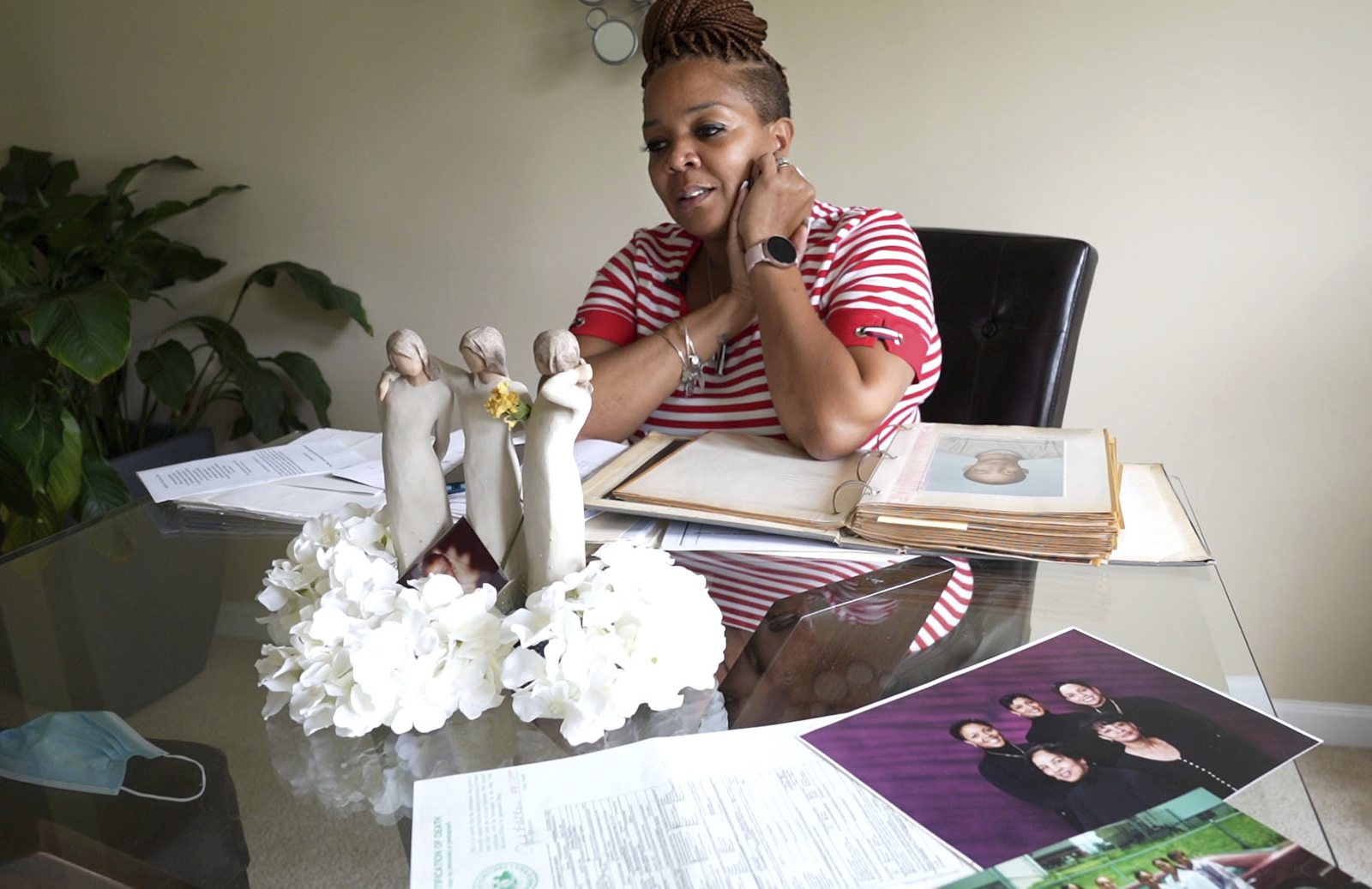

Aug. 9, 2020
By Jamie Martines and Natasha Lindstrom
As death became a constant at Brighton Rehabilitation and Wellness Center in mid-April, so did certain daily rituals, according to some of the more than dozen residents, families and current and former staff members interviewed during a Trib investigation.
Family members’ frantic pleas for updates about loved ones locked down inside Beaver County’s largest nursing home went unanswered for days.
Bone-tired, frightened nurses took to Facebook to plead for masks.
Nursing assistants were charged with the grim task of tagging body bags, a former staffer said.
 Amid all of this, on April 30, state health department officials said they did “not believe that there were any serious red flags” regarding Brighton’s response to the covid-19 pandemic.
Amid all of this, on April 30, state health department officials said they did “not believe that there were any serious red flags” regarding Brighton’s response to the covid-19 pandemic.
A day later, the state dispatched inspectors to the sprawling Brighton Township complex, finding dozens of infection control violations that put residents in all 11 units of the facility in “immediate jeopardy,” according to health department reports reviewed by Trib reporters.
Inspectors found staff not wearing masks or washing their hands, workers who took temperatures and oxygen levels of coronavirus-infected and healthy patients without changing gloves and at least 17 nurses’ aides without recent training in infection control, the Trib review of records found.
Four days later, on May 5, a report indicated all problems had been corrected.
Neither health department nor Brighton officials would comment about how the widespread deficiencies were so quickly addressed.
A little over two weeks earlier, two reports issued 24 hours apart showed serious deficiencies the first day but no problems on the second.
That first report, dated April 17, had inspectors citing infection control and training issues along with bathrooms, showers and furniture encrusted with a “brown substance” and a lack of working soap dispensers and handwashing stations, records indicate.
A report issued the next day, on April 18, stated there were no deficiencies at the facility.
“I think what bothers me the most is that they did have infection control problems repeatedly,” said Diane Menio, executive director of the Philadelphia-based Center for Advocacy for the Rights and Interests of the Elderly. “That should have been a (red) flag.”
It also was on April 18 that Jamie Worthy’s sister, Kim McCoy-Warford, 64, died of covid-19 after spending seven years at Brighton.
Worthy, of Robinson, watched her sister die on an iPhone, struggling to breathe as the virus sapped what little strength remained in her body.
A Brighton doctor told Worthy that her sister, who suffered from dementia, was in a four-person room where the first covid-19 patient was confirmed March 25.
Brighton medical staff would not comment for this story.
McCoy wasn’t moved out of her room until she twice had to be hospitalized with a fever and pneumonia, her sister said. Each time, they brought her back to the same room without her testing negative for the virus. Her wing soon became Brighton’s covid-19 isolation unit, Worthy said.
“When the first person was diagnosed with it, why didn’t you take her out? Why didn’t you start preventative measures for the people in the room? Why didn’t you tell the families? Why didn’t you tell me?” Worthy said.
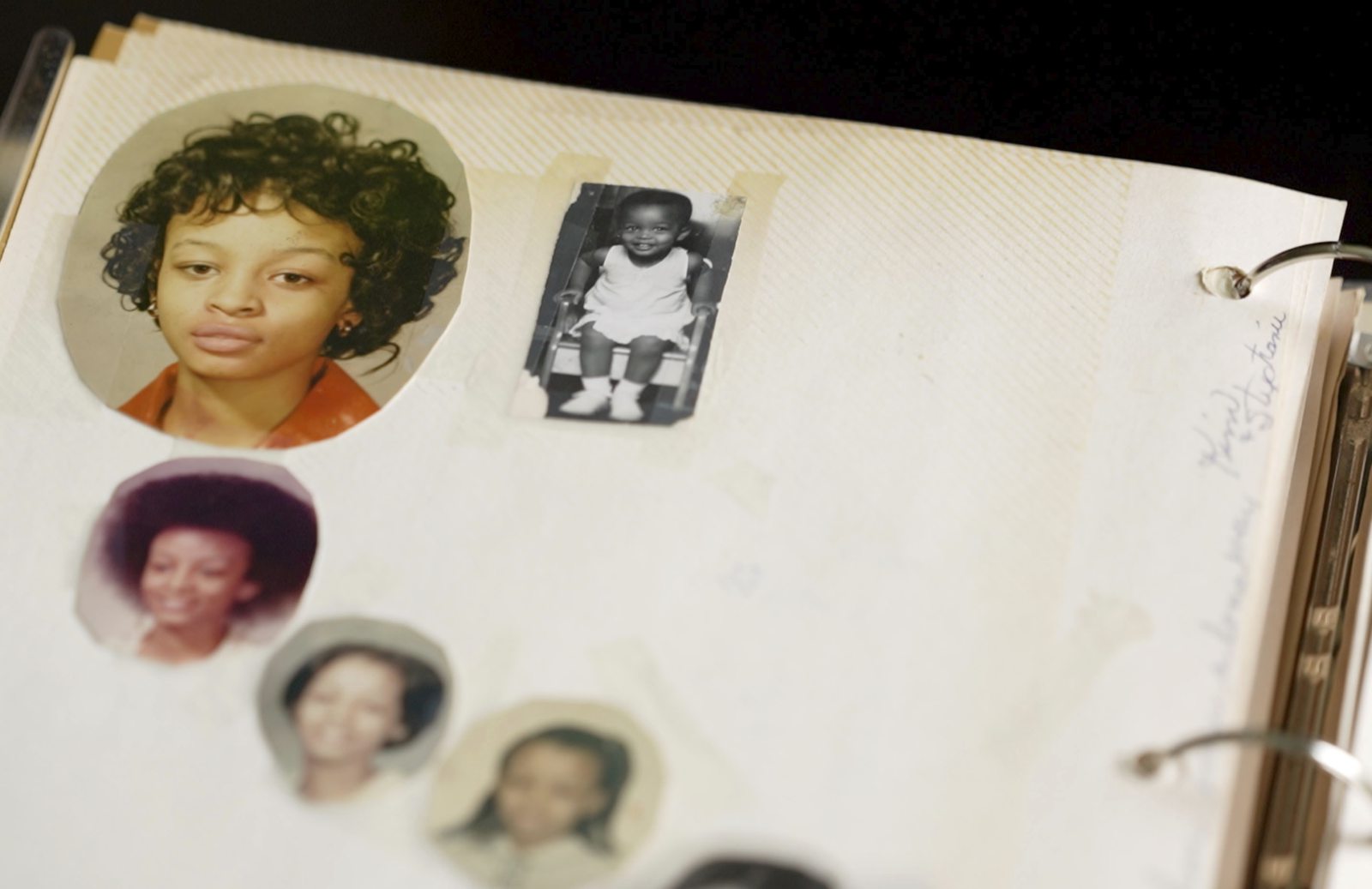
Some patients were quarantined, according to Evelyn Gilbert, 53, a stroke survivor from Aliquippa, who spent three weeks in a quarantine unit suffering mild symptoms of covid-19.
Once there, she saw nurses’ aides stressed and unable or unwilling to answer questions. She saw unmasked dementia patients wandering the halls. Chaos was all around, she said.
“It was very scary,” she added.
On May 11, the state, acknowledging serious issues at Brighton, appointed a temporary manager for the facility. At the same time, the Pennsylvania National Guard was deployed there for a week to help with cleaning and patient care.
Although company officials refused repeated requests for interviews, there were generic statements signed by “Brighton Facility Management” issued periodically. None answered specific questions about infection control or staffing protocols during the pandemic.
When asked about alleged pre-pandemic issues cited by family members of current and former residents such as ants trailing out of elevators, residents sitting in waste for hours, dementia patients suffering from bed sores and dirty bathrooms and showers, the company issued the following statement:
“From providing medical care, to feeding, bathing and socializing residents, our staff has always and will continue to strive to provide the highest level of care for our residents.”
In early May, when more than 50 people had died at Brighton, the situation caught the attention of the Centers for Medicare & Medicaid Services, a federal agency regulating nursing homes.
The agency sent investigators to the site between May 12 and May 18, eventually issuing a fine of $62,500, about the same total amount it was fined for similar violations from 2017 to 2019.
Brighton has spent 30 months on the agency’s watch list for underperforming nursing homes.
In all, Brighton has been cited for at least 62 deficiencies from 2018 through January 2020, including three serious infection control violations, the federal agency’s records indicate.
Last year, Brighton was cited during inspections 23 times, compared to a Pennsylvania nursing home average of 8.8 citations per year and a national average of 8.3, the agency’s records show.
In the past three years, 41 complaints — filed by those inside and outside Brighton — resulted in citations, federal records show.
The most common punishment for a nursing facility is a fine, usually ranging from $2,000 to $15,000, according to records, but other consequences exist.
The state, which gets paid by the federal government to license and oversee nursing homes, can issue provisional licenses and, though rarely used, even revoke a license, installing a new manager or calling for a full takeover when a facility is “unable or unwilling” to comply with regulations.
The Centers for Medicare & Medicaid Services has the power to halt new admissions and pull a nursing home’s Medicare and Medicaid contracts — a move that could bankrupt a for-profit facility such as Brighton, where the vast majority of residents depend on Medicaid. Such a harsh consequence rarely is invoked, experts said.
The state Attorney General’s Neglect Team handles criminal allegations against nursing homes, the office said.
State Health Secretary Dr. Rachel Levine and other state health officials have declined numerous interview requests, but during a June 24 news conference at Penn State’s Milton S. Hershey Medical Center, she urged family members to report concerns to the state’s anonymous complaint system.
“If you file a complaint, we’ll investigate,” she said.
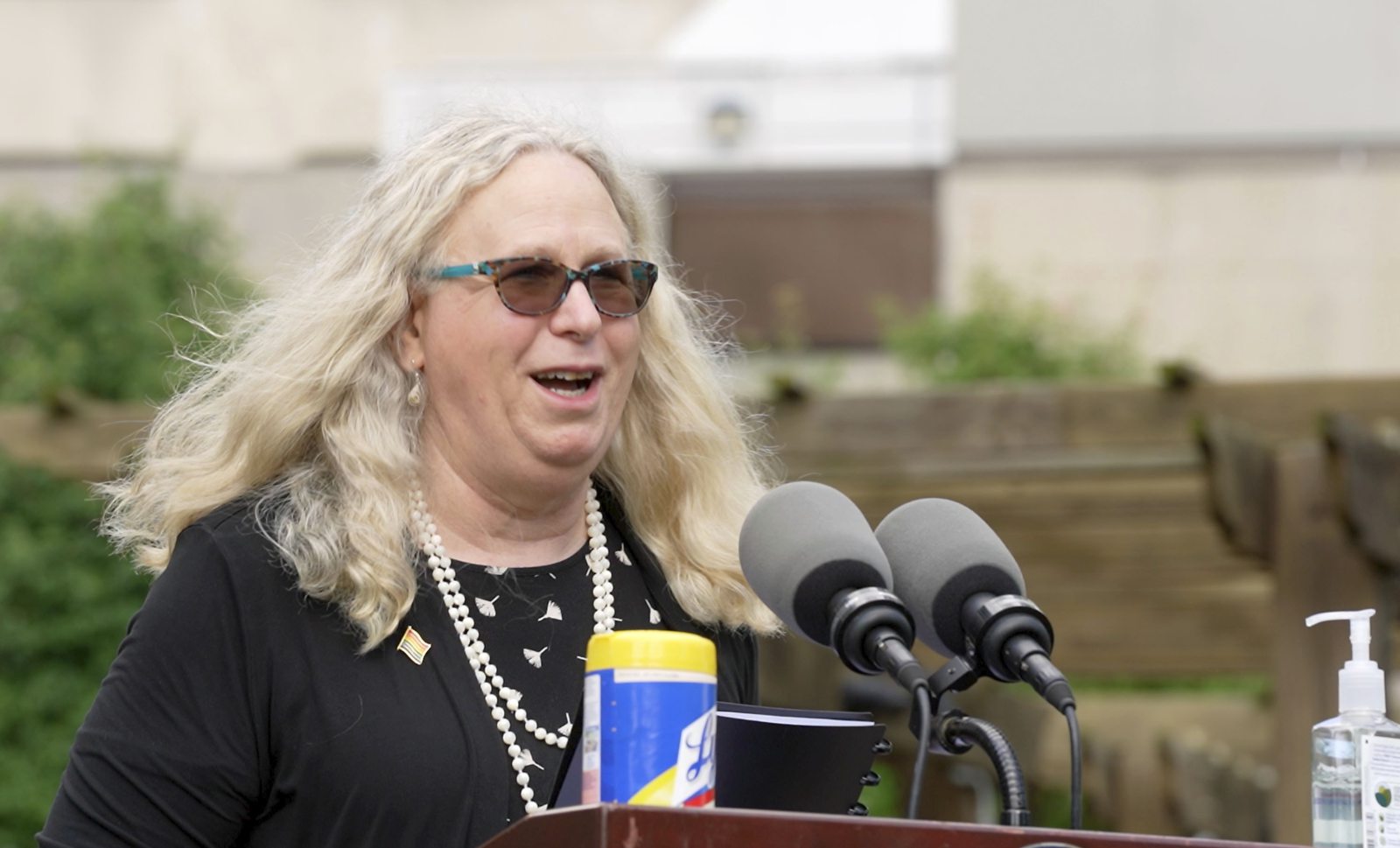
At least 23 inspections have been performed at Brighton per year since 2016, state records show. Reports as recent as December describe unsanitary conditions in rooms, including “visibly soiled” privacy curtains, dirty pillowcases and foot cushions, and splattered substances on floors and ceilings.
So far in 2020, the facility has been inspected 14 times, including nine times since the pandemic started in March. Inspectors visited Brighton once in March, three times in April — including in-person visits April 16-17 — four times in May and once in June, records indicate.
State Auditor General Eugene DePasquale and others have been critical of the fact that even as it became clear that nearly 70% of Pennsylvania’s covid-19 deaths were linked to long-term care homes, the state health department scaled back inspections while most states were ramping up inspections.
By June, most states had inspected at least half of nursing homes. States such as Florida and Ohio had inspected at least 75% of their facilities, and California had inspected 95%, according to federal records.
At that stage, Pennsylvania had inspected only 16% of its sites, federal records show.
“The pandemic has exacerbated the very flaw that we saw back in 2016 and 2017. (Nursing homes) had not enough staff, too much turnover, not enough inspections,” DePasquale said. “We were one catastrophe away from seeing these issues explode, and that’s certainly what we’re seeing with nursing homes now.”
!function(e,i,n,s){var t=”InfogramEmbeds”,d=e.getElementsByTagName(“script”)[0];if(window[t]&&window[t].initialized)window[t].process&&window[t].process();else if(!e.getElementById(n)){var o=e.createElement(“script”);o.async=1,o.id=n,o.src=”https://e.infogram.com/js/dist/embed-loader-min.js”,d.parentNode.insertBefore(o,d)}}(document,0,”infogram-async”);
After halting visitations on May 11, the state banned ombudsmen — independent advocates for nursing home residents under the state Department of Aging — from entering nursing homes. Officials also shifted mostly to virtual inspections that effectively left nursing homes to police themselves, advocates said.
The health department would not describe step-by-step procedures for conducting virtual inspections, but officials said they offer “the exact same opportunities, without being on-site.
“We have the ability to review documents, interview facility leadership, interview employees and interview residents. These interviews may take place through virtual video, audio or email,” according to the health department.
Since the beginning of March, more than 1,047 inspections have been performed by the department’s 115 long-term care surveyors, according to the health department.
A breakdown of virtual and in-person inspections was not available. Inspection reports do not indicate whether visits are done virtually or in person. Most inspections are now occurring in person, a health department spokesperson said.
Federal health officials could not provide numbers of how many nursing homes nationwide used virtual inspections during the pandemic.
Virtual inspections were used by states to minimize the risk of bringing the virus into nursing homes, said Dr. Amesh Adalja, a Pittsburgh-based infectious disease specialist and senior scholar at the Johns Hopkins Center for Health Security.
“It has to be understood that a virtual inspection is not going to have the same level of rigor versus an in-person inspection,” Adalja said. “Clearly, you get a much different perspective when you’re there on the ground and able to look at things and freely move about the nursing home to look for deficiencies and look at and inspect the premises and controls that are put into place.”
Dr. Ramzi Asfour, founder and president of Axis Infectious Diseases, a Larkspur, Calif.-based nursing home consulting firm, said that “with virtual visits, they’re going to miss some of the nuances in terms of the hand hygiene, what’s actually going on.”
Federal records show Brighton residents also were receiving a fraction of the patient care time that others across the state and nation were receiving.
Brighton patients get an average of 25 minutes of care per day from a registered nurse compared to a Pennsylvania average of 49 minutes and a national average of 41 minutes, federal records show.
The state’s adequate threshold of 2.7 hours of total patient care is lower than the national average of 4.1 hours and industry goals of 4.7 or more, records show.
The Trib found that Brighton has increasingly relied on more nurse aides and fewer certified nurses in recent years, according to cost reports filed with the state Department of Human Services.
Worthy blames her sister’s death on deficiencies that made Brighton residents vulnerable long before the pandemic.
“Covid cannot be used as a cover-up for them,” she said. “Things were bad before that. What happened is that covid exposed what was happening down there — the lack of staffing, the worn-out staff, the lack of care from the administration.”
Jamie Martines and Natasha Lindstrom are Tribune-Review staff writers. You can contact Jamie at 724-850-2867, jmartines@triblive.com or via Twitter @Jamie_Martines. You can contact Natasha at 412-380-8514, nlindstrom@triblive.com or via Twitter @NewsNatasha.

Sens. Bob Casey and Pat Toomey have spoken out about oversight and care at the state’s nursing homes and long-term care facilities.
Casey: “Every outbreak of covid-19 in a nursing home, including that at the Brighton Rehabilitation and Wellness Center, is a tragedy. As the death toll in nursing homes and other long-term care settings has climbed to 62,000 nationwide, it is abundantly clear that the Trump Administration has failed to protect residents and the front-line workers who care for them. I introduced the Nursing Home Covid-19 Protection and Prevention Act to provide $20 billion in emergency funding and the national action plan we need to save lives in nursing homes, and I am pressing on Senate Republicans to make these vital investments in the next covid relief package.”
Toomey: “It is clear that aggressive infection-control measures weren’t taken in some of Pennsylvania’s long-term care facilities, particularly the ones that the Pa. Department of Health knew were struggling to meet existing federal and state requirements. Every single nursing home that falls short on caring for its residents must be improved, not just during times of crisis. Senator Casey and I worked together long before the covid-19 outbreak to improve transparency and care in our nation’s nursing homes. But when data showed most deaths occurring inside nursing homes, we laid out a strategy that I still believe would help save lives today: cohort residents, deploy more personal protective equipment, and prioritize testing for residents and workers.”
Options for reporting issues at nursing homes include:
• Pennsylvania Department of Health: Call 800-254-5164, email c-ncomplai@pa.gov or use the online complaint form on the department’s website. Complaints can be kept anonymous.
• State Attorney General’s Office: To report neglect or possible criminal allegations, email neglect-COVID@attorneygeneral.gov or call 717-787-3391 and ask for the Medicaid Fraud Control Section.
• Long-Term Care Ombudsman Program: Call 717-783-8975 or email LTC-ombudsman@pa.gov.
For emergencies involving immediate danger, call 911 or 877-72-432584 (877-PA-HEALTH).
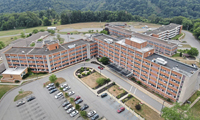 |
Problems at Brighton Rehab didn’t start with coronavirus, Trib probe finds |
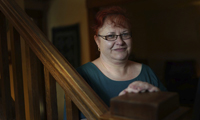 |
After months of uncertainty at the top, Brighton Rehab has manager in place through end of year |
 |
As outbreak spun out of control, Brighton Rehab ownership group remained mum. It still does. |
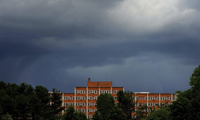 |
Brighton Rehab under scrutiny for hydroxychloroquine use to thwart coronavirus |